Flexible, Personalized Education Planning
Navigating special education can feel overwhelming, especially for families trying to understand how the Individualized Education Program (IEP) works in private school settings. While public schools follow strict federal guidelines under the Individuals with Disabilities Education Act (IDEA), private special education schools like Mainspring Academy follow a different (but equally supportive) process.
In fact, when implemented thoughtfully, private schools can offer more individualized, therapeutic, and consistent support than many public settings.
What Is an IEP, and Who Qualifies?
An IEP is a legally binding document under IDEA that outlines a student’s learning goals, accommodations, related services (such as speech or occupational therapy), and placement. In Florida, a public school must conduct a formal evaluation through the Exceptional Student Education (ESE) department to determine eligibility for an IEP.
However, when a student transfers to a private special education school, the public school district is no longer required to develop or implement an IEP. Instead, some students may be eligible for a service plan through Equitable Services – a federal provision under IDEA that applies to private school students (Florida DOE, 2023).
How Private Special Education Schools Handle the IEP Process
Although private schools are not mandated to follow IDEA’s IEP format, many (especially those serving students with complex needs) create internal equivalents that are just as comprehensive.
At Mainspring Academy, every student receives an Individualized Learning Plan (ILP). This plan includes:
- Present levels of academic and functional performance
- Measurable annual goals across academics, behavior, and daily living
- Integrated strategies used across therapy and classroom settings
- Regular progress monitoring with family updates
- Collaborative team meetings involving teachers, therapists, and parents
Because private schools aren’t bound by public education timelines, ILPs can be updated more frequently and with greater collaboration, focusing on true growth, not just compliance.
ILPs vs. IEPs: What’s Different and What’s Better
Here’s how Individualized Learning Plans (ILPs) at Mainspring compare to public school IEPs:
| Feature | Public School IEP | Mainspring Academy ILP |
|---|---|---|
| Legally required | Yes (under IDEA) | No (internally developed) |
| Update timeline | Annually (at minimum) | As needed |
| Services offered | Limited by district resources | Embedded into daily instruction |
| Class size | Often 15+ students | 6:2 student-to-staff ratio |
| Team communication | Often fragmented | Consistent team meetings |
| Goal flexibility | Tied to state standards | Based on functional, individualized benchmarks |
Why This Model Works: Data-Driven Results
Research supports the benefits of specialized private education:
- Smaller classrooms with embedded services lead to higher engagement, greater goal achievement, and improved independence for students with complex needs (Lang et al., 2010; Blatchford et al., 2011).
- Environments that offer dynamic and collaborative planning help students progress faster because interventions are consistent, relevant, and student-specific (Yell et al., 2021).
What Parents Should Know When Transitioning to a Private Special Education School in Florida
If you’re considering a move to a private special education school like Mainspring Academy, here are key steps to take:
- Request a copy of your child’s most recent IEP before withdrawing from the public school.
- Ask about the private school’s individualized planning model, such as an ILP.
- Share past evaluations, therapy records, and IEP goals to build a strong, personalized plan.
- Stay involved—your voice is a crucial part of the team, and private schools highly value family collaboration.
Discover the Difference at Mainspring Academy
At Mainspring Academy, individualized planning isn’t just a formality…it’s a daily commitment to growth. Our team works together to build and adapt plans that help each student thrive across academics, behavior, communication, and life skills.
Tell us about your child and schedule a tour today.
We’d love to show you how we support students with diverse learning needs through meaningful, personalized planning.w we support students with diverse learning needs through meaningful, personalized planning.
References
Blatchford, P., Bassett, P., Brown, P., Martin, C., & Russell, A. (2011). The impact of support staff on pupils’ ‘positive approaches to learning’ and their academic progress. British Educational Research Journal, 37(3), 443–464. https://doi.org/10.1080/01411921003765544
Florida Department of Education. (2023). Equitable services for private school students with disabilities. https://www.fldoe.org
Individuals with Disabilities Education Act, 20 U.S.C. § 1400 (2004). https://sites.ed.gov/idea
Lang, R., O’Reilly, M., Machalicek, W., Rispoli, M., Shogren, K., & Regester, A. (2010). Review of functional living skills training for individuals with autism spectrum disorder. Education and Training in Autism and Developmental Disabilities, 45(3), 335–348.
Yell, M. L., Katsiyannis, A., Losinski, M., & Ennis, R. P. (2021). Individualized education programs (IEPs) and special education law. Intervention in School and Clinic, 56(4), 212–219. https://doi.org/10.1177/1053451220954897

